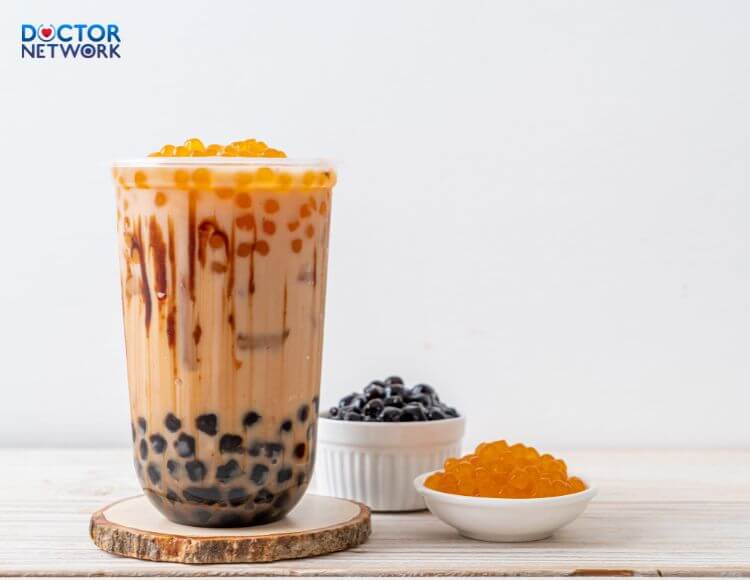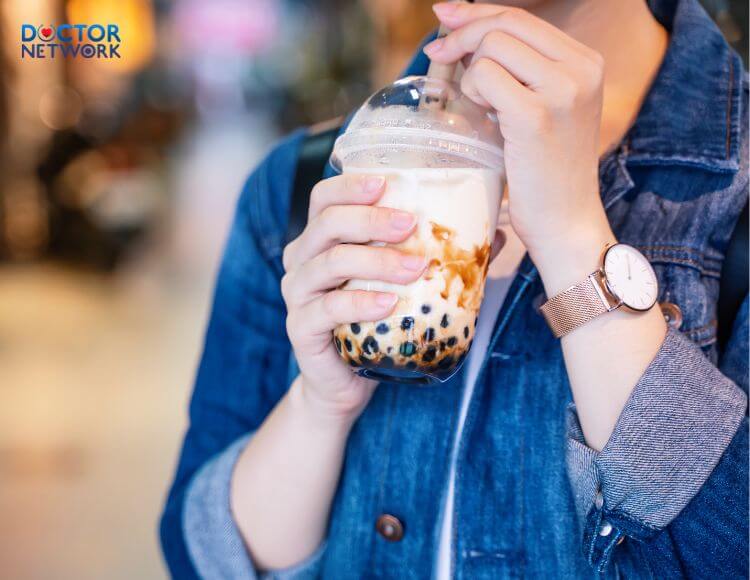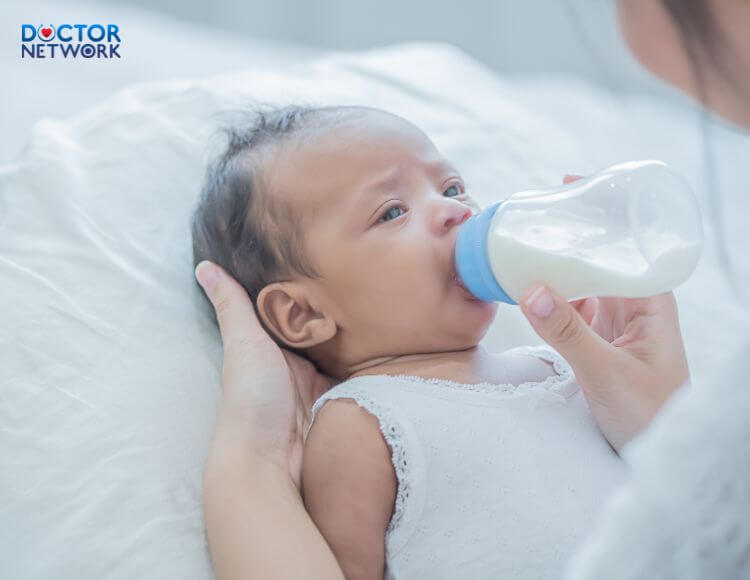Milk tea with its distinctive flavor and various topping options is a popular beverage enjoyed by many. However, for mothers after childbirth, consuming milk tea needs to be considered and evaluated carefully. So, when after giving birth can drink milk tea? Let’s explore what mothers need to know in this article.
Is Milk Tea Good for Health?
Milk tea, a popular beverage among the younger generation, is often chosen for various occasions such as outings, company gatherings, birthday parties, or meals. Regarded as an excellent thirst-quencher, many consider milk tea a way to relieve stress and bring comfort after a tiring day.

Milk tea – a popular beverage among the youth
Primarily made from pure fresh tea combined with milk powder, milk tea was initially seen as a healthful beverage. However, nowadays, milk tea often deviates from its original nature due to the addition of various ingredients.
Drinking Habits and Potential Risks
Based on scientific research, 100ml of milk tea contains approximately 8 grams of sugar. Therefore, when consuming a 500ml cup of milk tea, we intake about 40 grams of sugar. Regular consumption of milk tea can contribute to the body absorbing a large amount of sugar, contributing to obesity.
Moreover, people often add toppings like pearls, taro balls, or cheese cream when drinking milk tea, all of which are high-calorie foods. Regular consumption of these products can lead to increased blood fat levels, causing other dangerous health issues.
When After Giving Birth Can Drink Milk Tea?
The question of “When after giving birth can drink milk tea” is a concern for many young mothers. According to health experts, during the first 6 months after childbirth, it is strongly recommended that mothers abstain from drinking milk tea. This period is crucial as the baby needs to be exclusively nourished with breast milk. If possible, delaying the enjoyment of milk tea until the baby transitions to other foods is advised. However, after 6 months, if the mother feels the desire to indulge, she can drink milk tea but should do so cautiously and limit the amount.

“When after giving birth can drink milk tea?” – The answer is to limit it until the baby stops breastfeeding
Besides, not all milk tea beverages are safe. Establishments using ingredients of unclear origin and poor quality may pose health risks. For postpartum women who are breastfeeding, experts recommend avoiding milk tea and limiting this type of beverage until the baby has stopped breastfeeding.
What Are the Hazards of Drinking Milk Tea After Childbirth?
Drinking milk tea during the breastfeeding period not only fails to have positive effects but can also be harmful to both the mother and the baby. After childbirth, limiting the consumption of milk tea is crucial because this type of drink can cause the following harms:
1. Reduced lactation ability
Tannic acid in milk tea can reduce the mother’s lactation ability, affecting the mammary glands and the milk secretion process.
2. Impact on nutrient absorption
Compounds in milk tea can inhibit the absorption of iron, calcium, and zinc, leading to deficiencies in essential nutrients in breast milk.
3. Effect on the baby’s nervous system
Caffeine in milk tea can affect the newborn’s nervous system, causing frequent crying and emotional disturbances.
4. Contains caffeine and fatty acids
Milk tea contains caffeine and fatty acids, which can negatively affect the development of the baby’s nervous system.
5. Stimulates the delicate nervous system
The baby’s delicate nervous system is easily stimulated by caffeine, leading to sleep disturbances and frequent crying.

The mother drinking milk tea can stimulate the delicate nervous system of the baby
What Sweet Foods Are Good for Postpartum Mothers?
After childbirth, a mother’s nutritional needs increase, and choosing suitable sweet foods can provide energy and reduce stress without compromising health. Here are some options:
- Oatmeal and coconut milk: Oats are a good energy source, rich in fiber, and can regulate blood sugar. Combined with coconut milk, they create a sweet and creamy porridge, high in calories and nutrients.
- Steamed coconut cakes: Steamed coconut cakes are a traditional dessert. Coconut provides fat, and glutinous rice supplies energy.
- Dried fruits: Dried jujube, dried grapes, and dried bananas retain many nutrients and can satisfy sweet cravings without the need for added sugar.
- Chia seed pudding: Chia seeds are rich in omega-3, protein, and fiber. Combined with milk, yogurt, or coconut water, they create a delicious and nutritious pudding.
The decision to drink milk tea after childbirth is a personal choice for each mother. Nevertheless, experts recommend limiting or avoiding milk tea during the postpartum period. However, if a mother craves milk tea, she can choose to make it herself to control the ingredients and sugar content.
This article has addressed the question of “When after giving birth can drink milk tea” and related information. It is hoped that these insights will help mothers take the best care of their health and their babies.
Kiểm Duyệt Nội Dung
More than 10 years of marketing communications experience in the medical and health field.
Successfully deployed marketing communication activities, content development and social networking channels for hospital partners, clinics, doctors and medical professionals across the country.
More than 6 years of experience in organizing and producing leading prestigious medical programs in Vietnam, in collaboration with Ho Chi Minh City Television (HTV). Typical programs include Nhật Ký Blouse Trắng, Bác Sĩ Nói Gì, Alo Bác Sĩ Nghe, Nhật Ký Hạnh Phúc, Vui Khỏe Cùng Con, Bác Sỹ Mẹ, v.v.
Comprehensive cooperation with hundreds of hospitals and clinics, thousands of doctors and medical experts to join hands in building a medical content and service platform on the Doctor Network application.

























